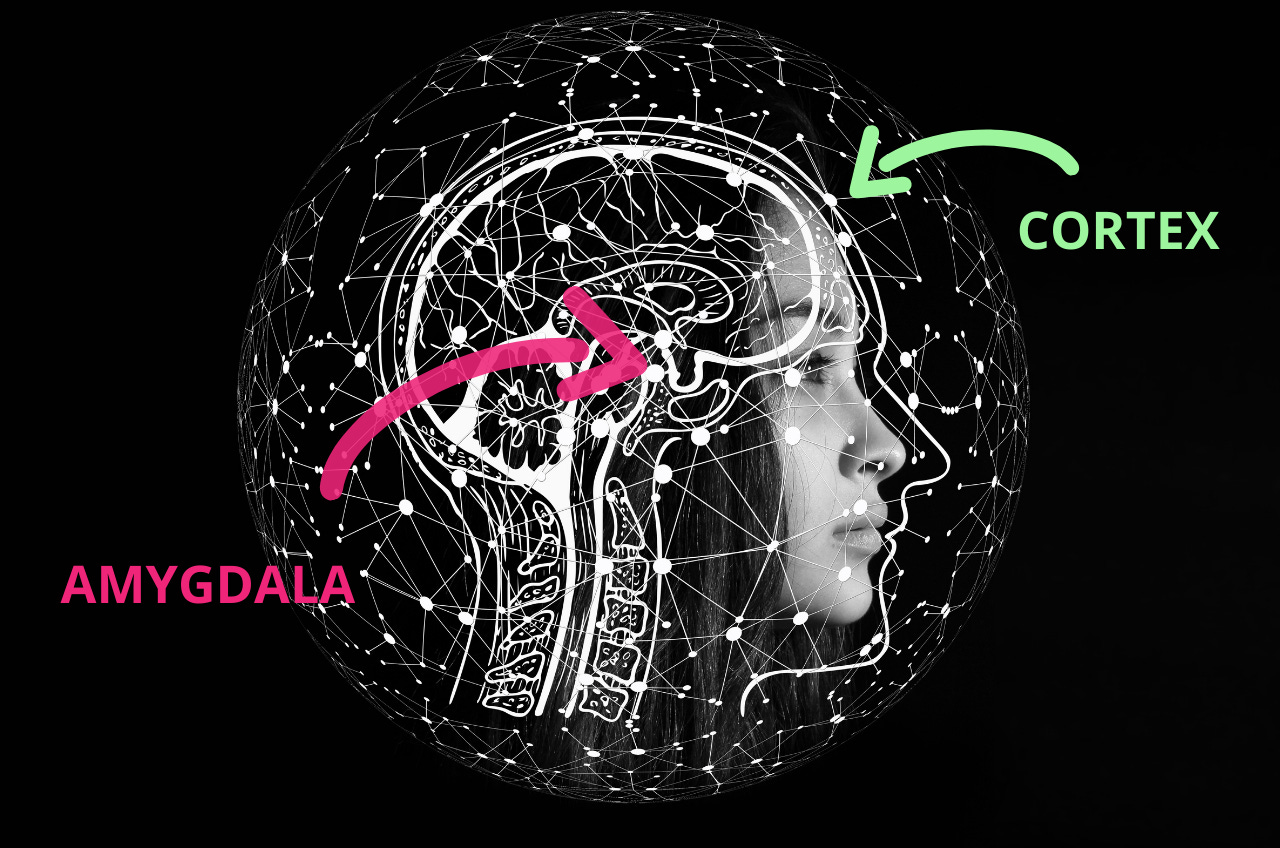If your fights are like the ones my husband and I used to have, you may think at if you just raise your voice during a fight, you’ll finally get heard. Or if you explain it better, and again. Ha!
Here’s what we’ve learned and what the brain has to do with it.
During an argument, if the other person is upset or starts to sink into blaming and complaining, don’t try to get them to understand you.
They can’t hear you.
In a previous article I wrote about the goals that we tend to focus on during conflict and how they are actually unachievable. During the fight, that is.
That’s because of the way the brain functions when under threat. And if a person is angry or stressed enough, they feel threatened.
When a person feels under threat, the amygdala becomes activated and takes over. The amygdala is the emotion center of the brain. It’s in charge of your fight/flight/freeze response.
As the amygdala gets activated, it suppresses activity in our prefrontal cortex, effectively shutting down our logical thinking and ability to choose our behavior. This is a wondrous power of the brain, designed to keep us safe in dangerous situations. The amygdala effectively tells the the cortex 'No time for thinking now, I've got this!' But the way the brain senses threat means that this response is triggered in situations that don't actually benefit from such an intense reaction, such as during arguments with loved ones.
So if the other person is feeling threatened or upset, the emotion center dominates the thinking, analytical part of their brain. In that condition, they can't truly hear you. The sound waves may be getting through to their brain, but they can't genuinely attend to what you're saying or think about it rationally. As a result, they're not able to understand you or see your perspective clearly.
At the same time, this is also happening in your brain and limiting your own ability to communicate. When we communicate well, we're attuned to the other person, watching their reactions, and explaining things so that they seem to understand. But when we're upset enough, we simply can't do that.
That’s why they can’t hear you.
So please, don’t waste your energy trying to get them to understand your point of view.
Or trying to get them to see that it would be so much better if they would talk about this calmly.
As long as things are stressed, the sound waves may go through their ears, but their brain can’t process the information.
Wait until things are calmer. Then say what you want to say.
Calm in Conflict is free. But if you’d love to support my work, click above.
Or subscribe for free. That’s also a gift to me.





So true! It’s so important to understand this piece and take a break before even trying to talk again in better circumstances. Thanks for the share 💞
This is a helpful breakdown of why heated arguments feel like talking to a brick wall! I love how you explain the brain’s role in all this. It’s so reassuring to know that it’s not about stubbornness, but biology. I’ve definitely been guilty of trying to “explain better” mid-argument (ha!).
Thanks for sharing a clear and practical perspective, Margo!